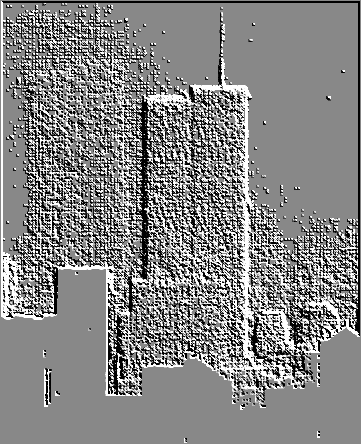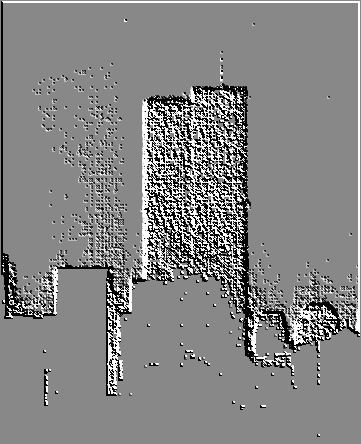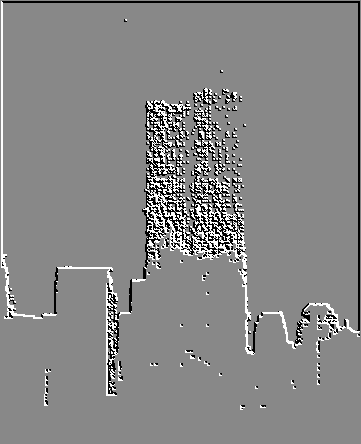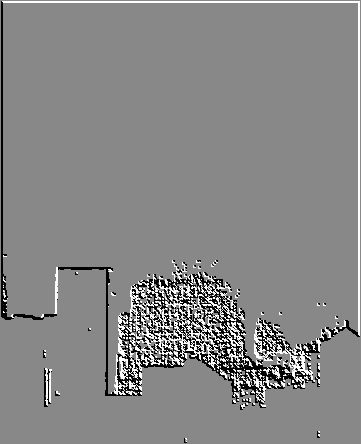Except Where You Came From
Bryan Charles
(Open City Books)

It always drifted after that, but it was the dream that counted, not the reality.
Brad Charles had the same dream, so he left Kalamazoo and arrived in New York when he was twenty-five years old and shared an apartment with friends. He lived off his savings for a time, sent out poems and stories and when they came back he faithfully filed the rejection slips and then sent out more and when they came back he sent out more and when they came back...
He fell in love with Samantha and Erin and finally landed a job with Morgan Stanley writing brochures about bonds for investors, working at the World Trade Center just before 9/11. He hated his job, fought with Samantha and Erin ... got the New York blahs, went to writer's conferences --- which is about as close as he ever got to The New Yorker, the Atlantic, et al. He starts taking Xanax, goes back on occasion to Kalamazoo and fights with his family and suffers what he calls "a beastly existence."

"Who?"
"The toilet paper guy."
"You found out?"
"Yes."
Whelan wants to know how me made that discovery. "I tricked him into thinking I'd left the men's room then snuck into a stall and sat on the toilet and waited till he finished."'
"You're joking."
"No."
"You ran a sting operation?"
"Yes."
"Okay so who's more disturbed? You or this guy?"
By this time in the memoir, it's a question all of us may have. I mean, we've stuck by Bryan for over 150 pages in what is a narrative of blowing it (as many of us have done) by moving to New York City and (1) Failing to get any of our many stories (or poems, or articles) published; (2) Ending up in a stupid job that may well drive us bonkers; and (3) Brow-beating ourselves over (1) and (2). Bryan himself seems, at times, to move over the edge. He includes several startling examples of the price we pay for Not Making It in the Big City a/w Not Becoming Famous sweepstakes.
Like using the code to Samantha's answering machine to listen in on her messages, then when she calls, letting her know he knows who she has been seeing. Then, at another point, he looks into the mirror, exclaims "You're a fucking failure " and falls weeping on the floor.

At one point, he has a temper-tantrum on the telephone with a woman from the IRS hot-line because he says he has lost his $300 check they sent him, wants another. It's a lie, but it occurs after the fall of the Twin Towers. Which he was in. Up there on the seventieth floor. On September 11th, 2001.
The disaster scene that then unfolds in There's a Road comes to be as gripping as any I have read. In a generally aimless narrative, wandering all over New York (and as far out as Michigan), into the equally aimless depths of the psyche --- all suddenly comes into focus.
For Bryan is a militantly pared-down narrator, and his brief descriptions, his pithy dialogue, him and his world come, in disaster, to have meaning. We are there: the building shaking, the confusion, the smoke, the decisions ... whether to stay, whether to leave. "People argued about what to do ... I was scared, I couldn't talk."
- A door to the stairwell opened. It was packed with workers from higher floors already making their way down. Traffic was two-lane, shoulder to shoulder. I waited my turn.

- Whelan appeared on my right. I heard people talking. They said a plane hit the other tower. Details beyond that were vague. A woman behind me was saying she'd seen people jumping out of windows. I turned and looked at her. Her face was red from crying. Her eyes were crazy. She didn't seem to see me.
Then, "There is a problem in building one," said a voice on the loudspeaker.
- Building two is secure. I repeat. Building two is secure. Please return to your desks and await further instruction.
"The voice was official and I was relieved. The mood in the stairwell lightened. A guy in front of me said fuck it, I'm walking back up. He brushed by me and was gone."
- I turned to Whelan. What do you think? he said. I paused for a second. Let's check it out. All right, he said. We walked to the next exit and got out of the stairwell.
"Don't do it," the reader is thinking. "Go back to the stairs. Right now," we are saying. "All the walls were white," he writes.
- People crowded the halls. They all looked scared. They laid out possible next moves in voices pitched near total panic. The mood on the floor seemed at odds with what the voice on the speaker had said. A man walked by shaking his head. He said bodies were falling out of the other building by the dozen. Some other guys heard this and ran to go see. My feeling of relief vanished. Whelan, this is insane, let's get the fuck out of here, I said. Whelan agreed. We got back on the stairwell.
